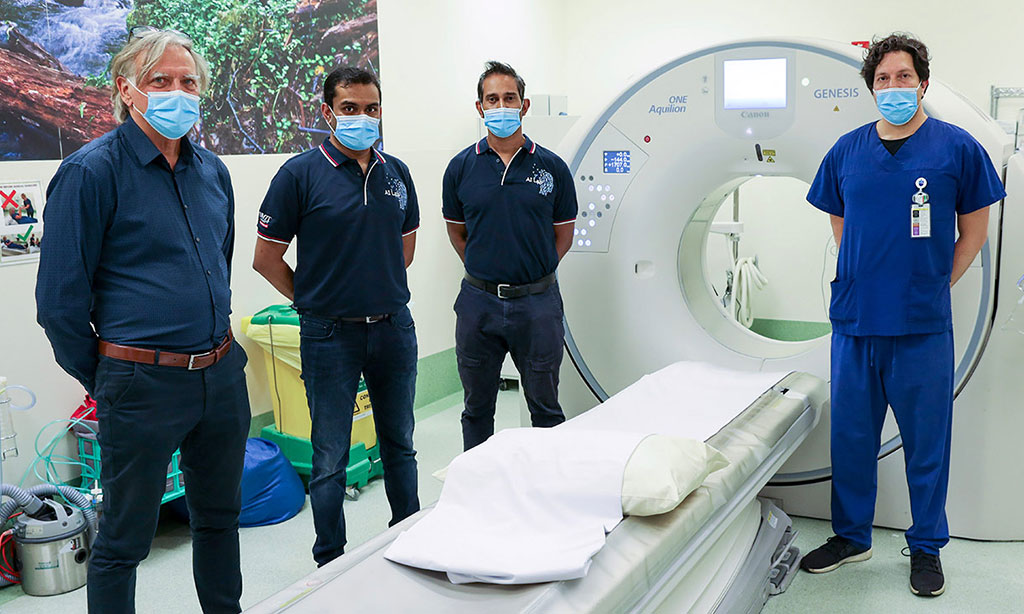AI Diagnostic Tool Analyzes CT Scans to Spot Prostate Cancer Before Patients Have Symptoms
By MedImaging International staff writers
Posted on 13 Jul 2021
Researchers have developed a diagnostic tool that can spot prostate cancer before patients have any symptoms, using artificial intelligence to analyze Computed Tomography (CT) scans in just seconds.Posted on 13 Jul 2021
Researchers at RMIT University (Melbourne, Australia), in collaboration with clinicians at St Vincent’s Hospital Melbourne (Australia), have developed an artificial intelligence (AI) program that could catch the prostate cancer earlier, allowing for incidental detection through routine CT scans. The technology works by analyzing CT scans for tell-tale signs of prostate cancer, something even a well-trained human eye struggles to do.

Image: AI Diagnostic Tool Analyzes CT Scans to Spot Prostate Cancer Before Patients Have Symptoms (Photo courtesy of RMIT University)
Prostate cancer is the most diagnosed cancer and is slow growing, usually detected incidentally due to which it can go undiagnosed for years. It was responsible for an estimated 12% of male cancer deaths in 2020. Early detection is the key to successful treatment but men often dodge the doctor, avoiding diagnosis tests until it’s too late. CT imaging is not suitable for regular cancer screening because of the high radiation doses involved. CT scans were great for detecting bone and joint problems but even radiologists struggled to spot prostate cancers on the images. The new AI solution can be used to run a cancer check whenever men have their abdomen or pelvis scanned for other issues.
For the study, the researchers studied CT scans of asymptomatic patients, with and without prostate cancer. The team trained the AI software to look for features of disease in a variety of scans and where exactly to look for them, avoiding the need to manually crop the images. The AI performed better than radiologists who viewed the same images, detecting cancerous growths in just seconds. What’s more, the AI improved with each scan, learning and adapting to read images from different machines to spot even the smallest irregularities. The technology can be applied at scale, potentially integrating with a variety of diagnostic imaging equipment like MRI and DEXA machines - pending further research.
“We’ve trained our software to see what the human eye can’t, with the aim of spotting prostate cancer through incidental detection,” said RMIT’s Dr. Ruwan Tennakoon. “It’s like training a sniffer dog – we can teach the AI to see things that we can't with our own eyes, in the same way a dog can smell things human noses can’t.”
Related Links:
RMIT University
St Vincent’s Hospital Melbourne














